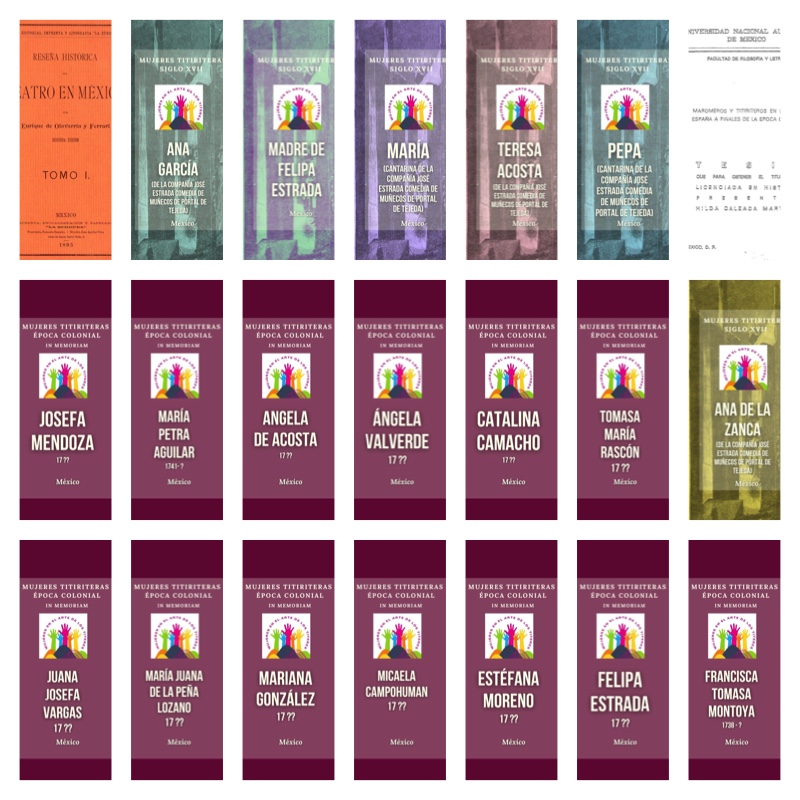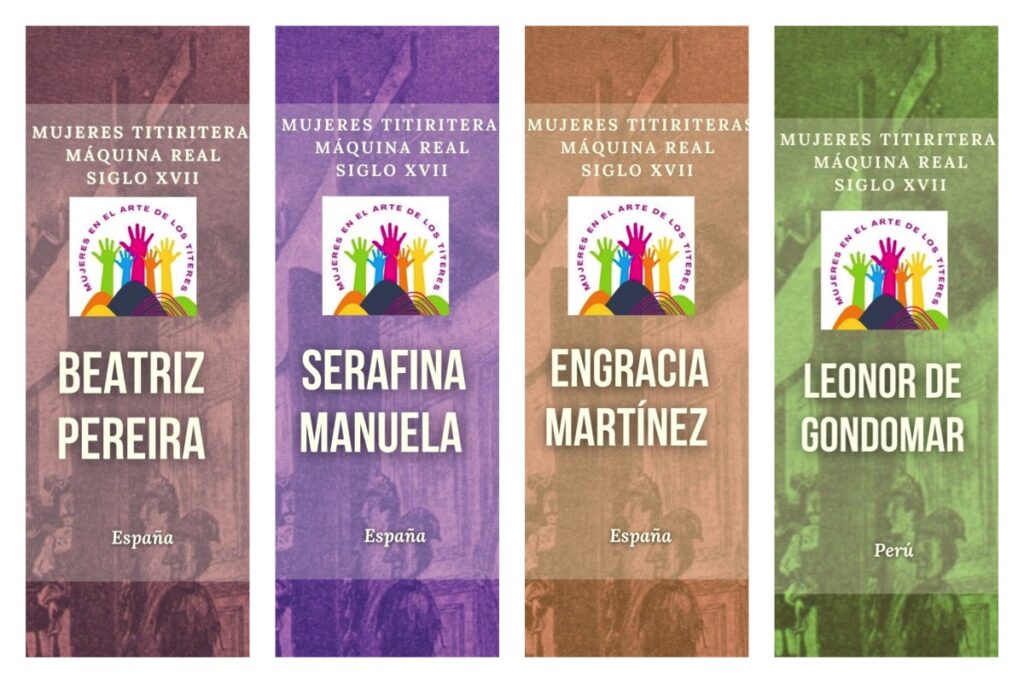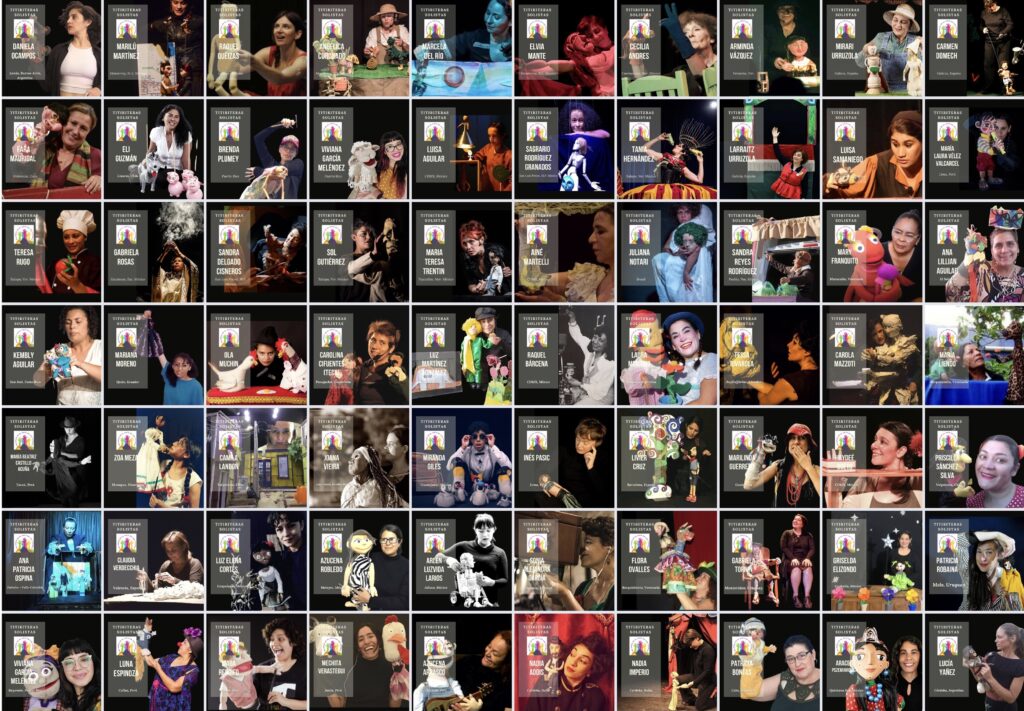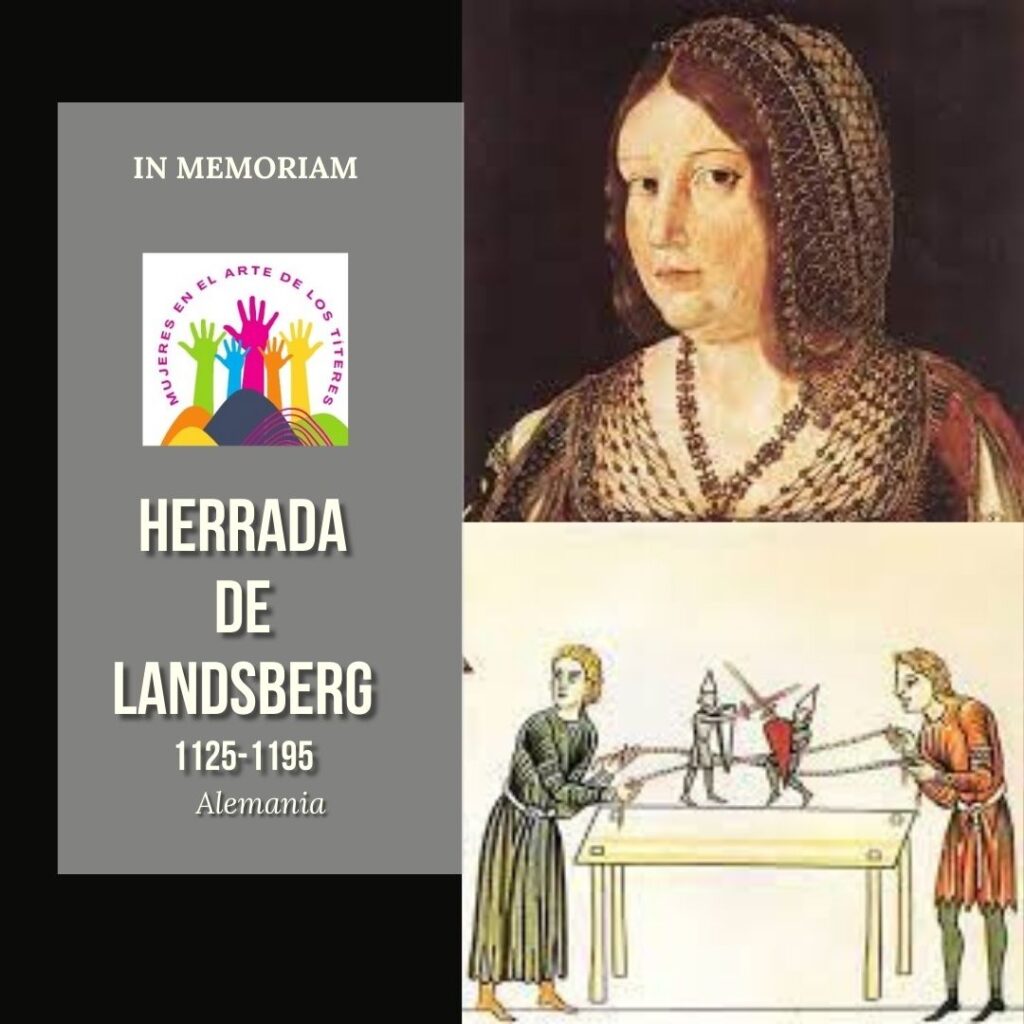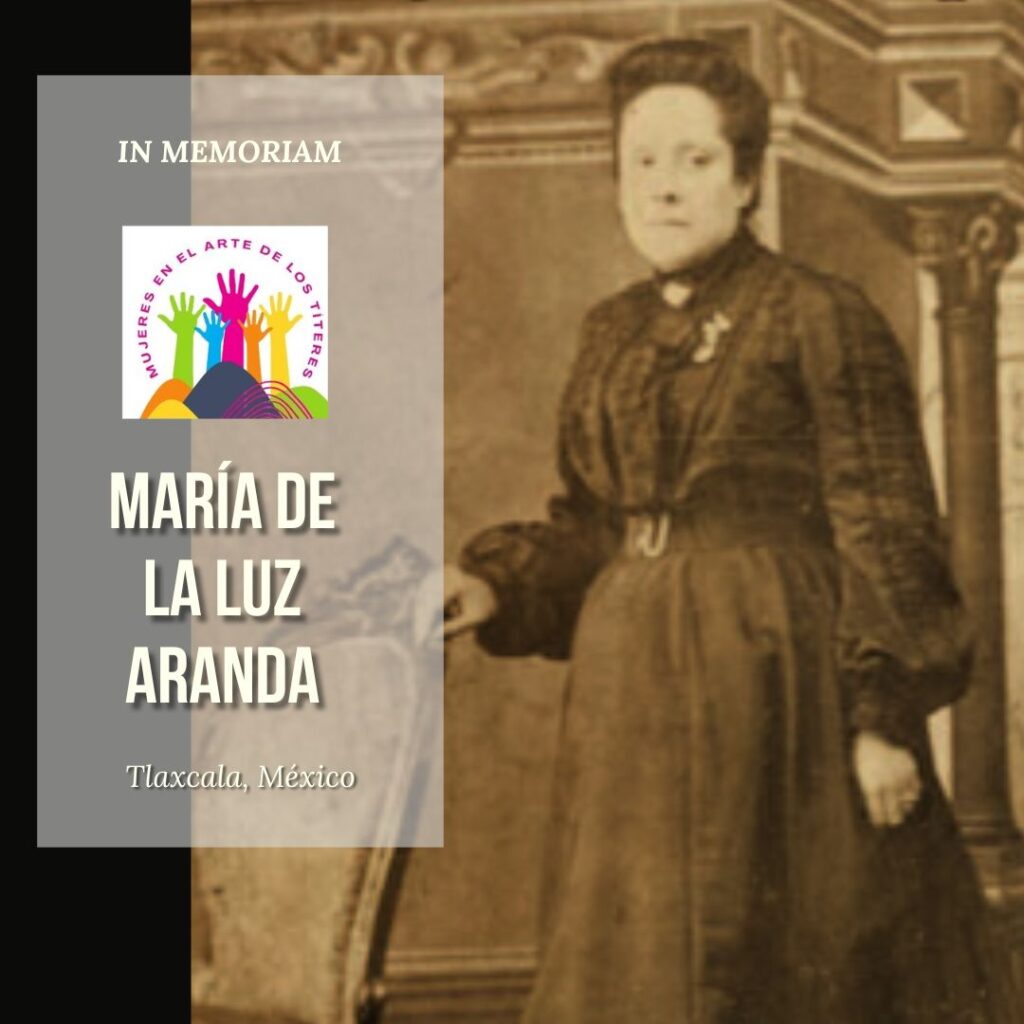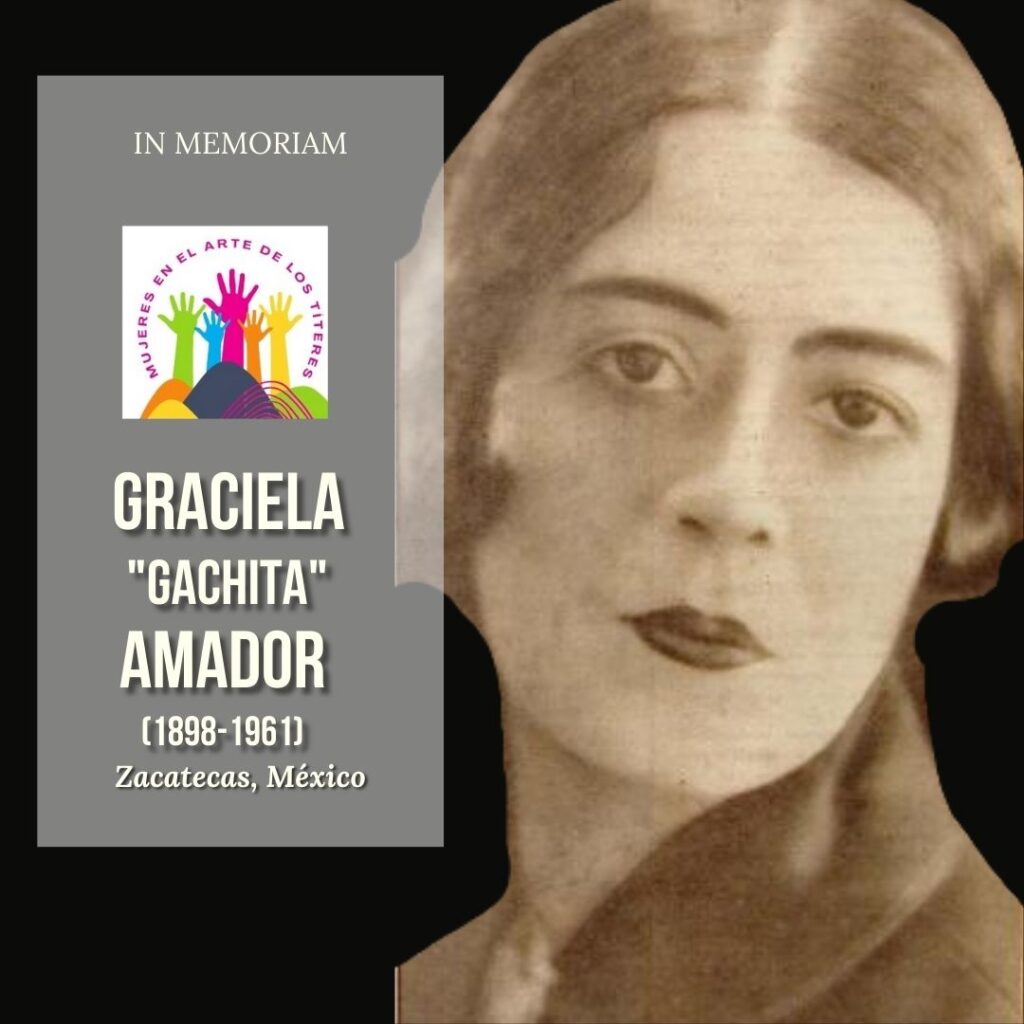No tuve el gusto ni el honor de conocer a la maestra Alicia, de ella supe por la noticia aparecida en FB acerca de su fallecimiento. Transcribo la información que encontré en la WEB sobre su vida y sus aportes como mujer en el arte de los títeres. Conocer nuestras historias nos permite darnos cuenta de quiénes nos abrieron camino, y que en esos quiénes la labor de las mujeres siempre estuvo presente.
Nació en Neuquén el 30 de julio de 1934. Murió el 29 de Marzo del 2022 a los 87 años.
No tuve el gusto ni el honor de conocer a la maestra Alicia, de ella supe por la noticia aparecida en FB acerca de su fallecimiento. Transcribo la información que encontré en la WEB sobre su vida y sus aportes como mujer en el arte de los títeres. Conocer nuestras historias nos permite darnos cuenta de quiénes nos abrieron camino, y que en esos «quiénes» la contribución de las mujeres siempre estuvo presente.
Alicia Figueira de Murphy: arte y magia
https://www.lmneuquen.com/dolor-el-fallecimiento-la-fundadora-la-escuela-titeres-n898531
https://www.lmneuquen.com/forjadoras-del-neuquen-hoy-n217487
Nació en Neuquén el 30 de julio de 1934. Es hija de Valentín Figueira Ares, un español de Galicia, y de Sofía Turiel, argentina, nacida en Bahía Blanca. Sus padres en 1924 adquirieron un campo en Cinco Esquinas, Río Negro, y se trasladaron a vivir al lugar. Aquí nació Alicia.
Estudió en la Escuela San Martín, se recibió primero de Perito Mercantil y luego de Maestra Normal Nacional en 1958. Posteriormente cursó el Profesorado de Arte Dramático en la Escuela Superior de Bellas Artes de Neuquén, en 1979.
A continuación obtuvo Certificado de Capacitación, especialidad Títeres, dictado por Alcides Moreno de Cecilia Andrés y de dos años de duración.
Realizó cursos intensivos sobre manipulación, interpretación y puesta en escena con títeres, dictados por Héctor Di Mauro y el uruguayo Cholo Laureiro.
A fines de la década del ’50, Alicia conoció a Guillermo Murphy, un descendiente de irlandeses con el que se casó en 1960. De esa unión tuvo tres hijas: Gabriela, María Victoria y María Virginia, quienes les dieron seis nietos y un bisnieto.
Sintetizar su vasto curriculum no es tarea fácil. Decimos que fue delegada del Fondo Nacional de las Artes en esta provincia; secretaria de la Escuela Provincial de Bellas Artes; cofundadora de la Escuela Provincial de Títeres (mayo de 1968), y fue su directora durante 18 años. Además de presidenta de la comisión organizadora de la Semana del Títere en la Educación Neuquén 1970 y del Tercer Encuentro Nacional e Internacional, participó en encuentros de títeres en Buenos Aires y Tucumán. Integró la comisión ejecutora de Unima (Unión Internacional de Marionetistas Argentinos), en donde participó en la redacción de los estatutos. Dictó cursos de perfeccionamiento en distintas localidades de las provincias de Neuquén y Río Negro. Realizó giras artísticas con teatro y títeres por Perú, Ecuador, Colombia, Venezuela, con el Teatro el Grillo en 1977.
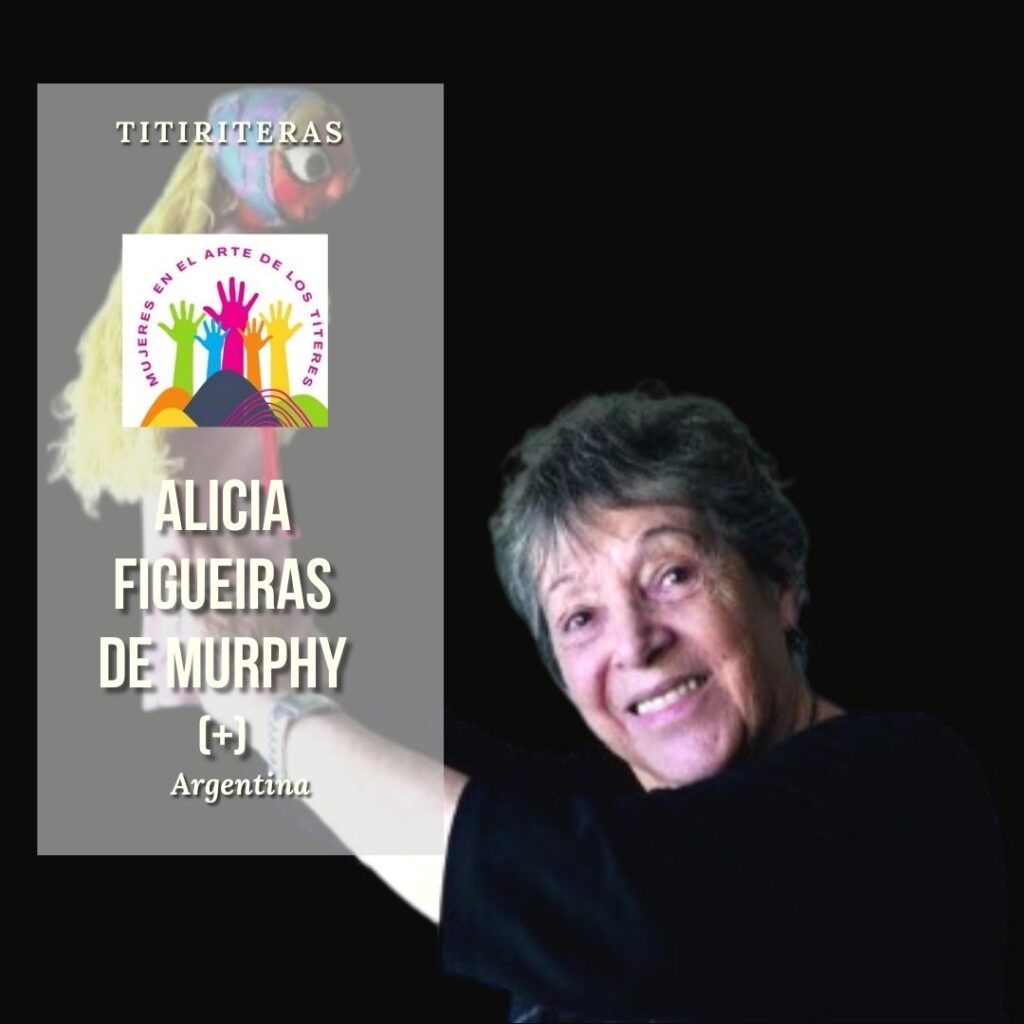
Obtuvo numerosos premios: en la categoría Niños, Concurso Nacional de Obras para Teatro de Muñecos, en 1977, y el premio Emi (Región Comahue) a la mejor actriz, en 1987.
En 1993, al cumplirse el 25 aniversario de la institución, se le impuso su nombre a la Escuela Provincial de Títeres por Resolución del Consejo Provincial de Educación.
Asimismo, obtuvo diploma al mérito, Consejo Provincial de Teatro de Neuquén, año 2000, integrante de Mujeres de la Cultura Neuquina en 2010. Fue invitada al Encuentro Internacional de Escuelas Artísticas, especialidad Títeres en Charleville, Francia, en 1996.
Actuó en el Teatro Libre del Neuquén “Amancay” y desempeñó papeles protagónicos en “Un día de octubre” y “Ha llegado un inspector”, entre otras obras.
Fue cofundadora del Teatro del Bajo de Neuquén, donde se destacó como directora y actriz. Entre las obras recordadas, actuó en «La casa de Bernarda Alba».
Como directora de la Escuela Provincial de Títeres, actuó y dirigió los siguientes trabajos: «El verdulero Giussepín», «Pepe el marinero», «Murrungato del zapato», «El romance del enamorado y la muerte», «El gato y los ratones», «Mi amigo Michay», «El mago y el payaso», «Nada más que un sueño», «La calle del buzón», «Buen día caracol», «Historia de perros», «Dos farsitas medievales cada día más actuales», entre otras.
Es loable decir que en algunas de las obras nombradas actuó con Kike Sánchez Vera, afamado titiritero radicado en la zona. Ambos hicieron una película, “Los Titiriteros”, bajo la dirección de los recordados Kelly y Procopiuk.
Participó como actriz y titiritera en el Teatro KU de Jorge Onofri, entre 1987 y 1988.
Ha dictado cursos sobre técnicas de títeres, incluyendo la técnica del teatro negro, a un grupo de actores de Neuquén.
Murió el 29 de Marzo del 2022 a los 87 años
I did not have the pleasure or honor of meeting teacher Alicia, I learned about her through the news that appeared on FB about her death. I transcribe the information I found on the WEB about her life and her contributions as a woman in the art of puppetry. Knowing our stories allows us to realize who paved the way for us, and that in those who the work of women was always present.
She was born in Neuquén on July 30, 1934. She died on March 29, 2022 at age 87.
I did not have the pleasure or honor of meeting teacher Alicia, I learned about her through the news that appeared on FB about her death. I transcribe the information I found on the WEB about her life and her contributions as a woman in the art of puppetry. Knowing our stories allows us to realize who paved the way for us, and that in those «who» the contribution of women was always present.

She was born in Neuquén on July 30, 1934. She is the daughter of Valentín Figueira Ares, a Spaniard from Galicia, and Sofía Turiel, an Argentine, born in Bahía Blanca. In 1924, her parents acquired a field in Cinco Esquinas, Río Negro, and moved to live there. Alicia was born here.
She studied at the San Martín School, she received first a Commercial Expert and then a National Normal Teacher in 1958. Later she studied Dramatic Art Teaching at the Higher School of Fine Arts of Neuquén, in 1979.
She then obtained a Training Certificate, Puppet specialty, taught by Alcides Moreno de Cecilia Andrés and lasting two years.
She took intensive courses on manipulation, interpretation and staging with puppets, taught by Héctor Di Mauro and the Uruguayan Cholo Laureiro.
At the end of the ’50s, Alicia met Guillermo Murphy, a descendant of Irish whom she married in 1960. From that union she had three daughters: Gabriela, María Victoria and María Virginia, who gave them six grandchildren and a great-grandson.
Synthesizing her vast resume is no easy task. We say that she was a delegate of the National Fund for the Arts in this province; secretary of the Provincial School of Fine Arts; co-founder of the Provincial Puppet School (May 1968), and was its director for 18 years. In addition to being president of the organizing committee of the Puppet Week in Education Neuquén 1970 and the Third National and International Meeting, she participated in puppet meetings in Buenos Aires and Tucumán. She was a member of the executive committee of Unima (International Union of Argentine Puppeteers), where she participated in the drafting of the statutes. She taught improvement courses in different locations in the provinces of Neuquén and Río Negro. She made artistic tours with theater and puppets through Peru, Ecuador, Colombia, Venezuela, with the Teatro el Grillo in 1977.
Alicia Figueira de Murphy: art and magic
https://www.lmneuquen.com/dolor-el-fallimiento-la-fundadora-la-escuela-titeres-n898531
https://www.lmneuquen.com/forjadoras-del-neuquen-hoy-n217487
She won numerous awards: in the Children’s category, National Contest of Works for Doll Theater, in 1977, and the Emi award (Comahue Region) for best actress, in 1987.
In 1993, upon the 25th anniversary of the institution, the Provincial Puppet School was named after it by Resolution of the Provincial Council of Education.
Likewise, she obtained a diploma of merit, Provincial Theater Council of Neuquén, in 2000, member of Women of Neuquén Culture in 2010. She was invited to the International Meeting of Artistic Schools, Puppetry specialty in Charleville, France, in 1996.
She performed at the Teatro Libre del Neuquén “Amancay” and played leading roles in “Un día de Octubre” and “An inspector has arrived”, among other works.
She was co-founder of the Teatro del Bajo de Neuquén, where she stood out as a director and actress. Among her remembered works, she acted in «La casa de Bernarda Alba.»
As director of the Provincial Puppet School, she acted and directed the following works: «The Greengrocer Giussepín», «Pepe the Sailor», «Murrungato del Zapato», «The Romance of the Lover and Death», «The Cat and the Mice» «, «My friend Michay», «The magician and the clown», «Nothing but a dream», «Mailbox street», «Good morning snail», «A story of dogs», «Two medieval farsitas getting more and more current», among others.
It is commendable to say that in some of the named works she acted with Kike Sánchez Vera, a famous puppeteer based in the area. They both made a film, “The Puppeteers,” under the direction of the remembered Kelly and Procopiuk.
She participated as an actress and puppeteer in Jorge Onofri’s KU Theater, between 1987 and 1988.
She has taught courses on puppet techniques, including black theater technique, to a group of actors from Neuquén.
She died on March 29, 2022 at the age of 87.

